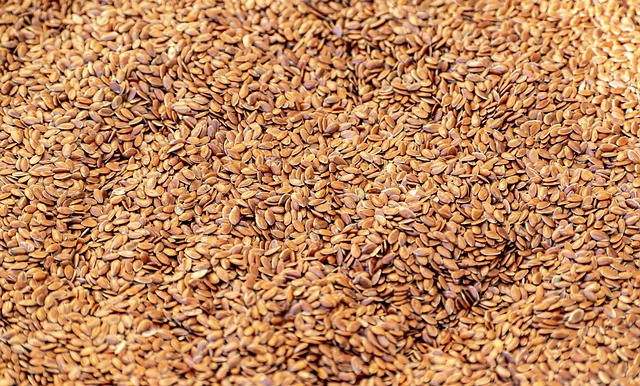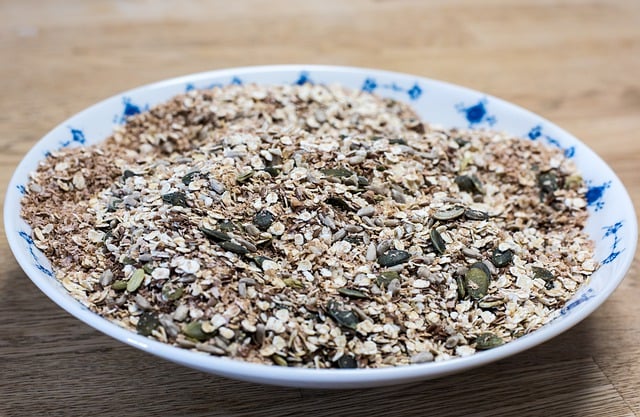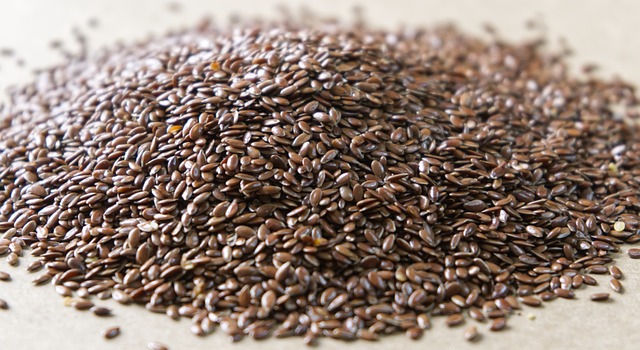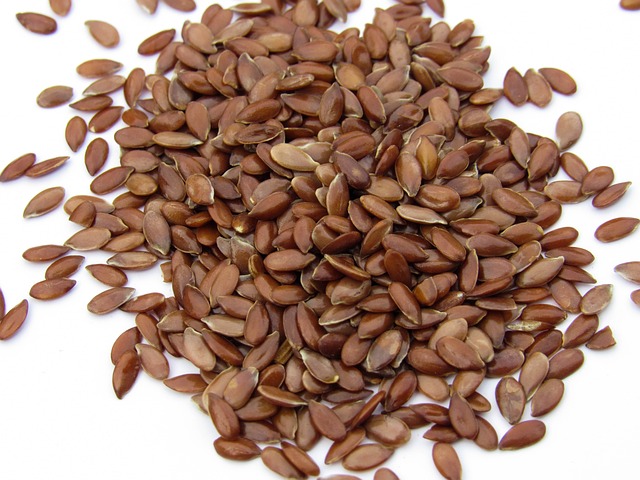In the vast realm of nutritional science, certain seeds have garnered attention for their exceptional health benefits, and flaxseeds stand out as a true nutritional powerhouse. Derived from the flax plant (Linum usitatissimum), these tiny seeds have been consumed for centuries, not just for their nutty flavor and versatility in cooking but also for their myriad health benefits. In this comprehensive guide, we will delve into the rich nutritional profile of flaxseeds and explore the science-backed advantages that make them a valuable addition to a balanced and health-conscious diet.

Nutrient Profile of Flaxseeds
Before we embark on the exploration of health benefits, it’s crucial to understand the rich nutrient composition that makes flaxseeds a nutritional standout. Flaxseeds are a rich source of:
Omega-3 Fatty Acids
– Flaxseeds are renowned for their high content of alpha-linolenic acid (ALA), a plant-based omega-3 fatty acid. These essential fats are vital for heart health, brain function, and inflammation regulation.
Dietary Fiber
– Both soluble and insoluble fibers are present in flaxseeds. Soluble fiber aids in blood sugar regulation and helps with weight management, while insoluble fiber adds bulk to stool, promoting digestive regularity.
Lignans
– Flaxseeds are one of the richest sources of lignans, a type of polyphenol with antioxidant properties. These compounds contribute to the seeds’ potential protective effects against various chronic conditions.
Protein
– Despite their small size, flaxseeds pack a protein punch, making them a valuable addition for individuals seeking plant-based protein sources.
Cardiovascular Health
Omega-3 Fatty Acids and Cholesterol Management
One of the most well-established health benefits of flaxseeds is their positive impact on cardiovascular health. The omega-3 fatty acids, particularly ALA, play a crucial role in reducing inflammation, improving blood vessel function, and regulating cholesterol levels.
Research suggests that the ALA content in flaxseeds may contribute to lowering LDL (low-density lipoprotein) cholesterol levels, commonly referred to as “bad” cholesterol. By incorporating flaxseeds into the diet, individuals may support overall cardiovascular well-being and reduce the risk of heart disease.
Blood Pressure Regulation
Flaxseeds’ ability to positively influence blood pressure adds another dimension to their cardiovascular benefits. The omega-3 fatty acids, combined with the seed’s potassium content, contribute to maintaining healthy blood pressure levels, reducing the risk of hypertension.

Digestive Wellness
Fiber Content and Bowel Regularity
Flaxseeds, with their generous fiber content, promote digestive health in multiple ways. Soluble fiber absorbs water, forming a gel-like substance that slows down digestion and helps control blood sugar levels. This property can be particularly beneficial for individuals with diabetes or those looking to manage their weight.
On the other hand, insoluble fiber adds bulk to stool, preventing constipation and promoting regular bowel movements. The combination of soluble and insoluble fibers makes flaxseeds an excellent choice for individuals seeking digestive wellness.
Antioxidant Properties
Flaxseeds are rich in lignans, which possess potent antioxidant properties. Antioxidants are substances that help neutralize free radicals in the body, which, if left unchecked, can lead to oxidative stress and cellular damage. The lignans in flaxseeds contribute to the seed’s potential role in protecting against chronic diseases, including certain types of cancer.

Potential Weight Management
The combination of fiber, protein, and healthy fats in flaxseeds can contribute to a feeling of fullness and satiety. Including flaxseeds in meals or snacks may help individuals control their appetite and reduce overall calorie intake, potentially supporting weight management efforts.
Culinary Versatility
Beyond their health benefits, flaxseeds offer a versatile and easy-to-incorporate option in the kitchen. These tiny seeds can be sprinkled on yogurt, added to smoothies, incorporated into baked goods, or used as a crunchy topping for salads. The mild, nutty flavor of flaxseeds enhances the taste of various dishes without overpowering other ingredients.
Incorporating Flaxseeds into Your Diet
Now that we’ve explored the extensive health benefits of flaxseeds, the next step is incorporating them into your daily diet. Here are some practical tips:
Smoothies and Yogurt
Add a tablespoon of ground flaxseeds to your morning smoothie or sprinkle them over your yogurt for a nutritional boost.

Baking
Include ground flaxseeds in your baking recipes for an added nutrient kick. They work well in muffins, pancakes, and even homemade granola bars.
Salads and Soups
Sprinkle whole or ground flaxseeds on top of salads or soups to introduce a subtle crunch and enhance the nutritional content.

Hot Cereals
Stir ground flaxseeds into your hot cereals, such as oatmeal or cream of wheat, for an extra layer of flavor and nutrition.
Egg Replacement:
Flaxseeds can serve as an egg substitute in some recipes. Mix one tablespoon of ground flaxseeds with three tablespoons of water for a vegan-friendly alternative to baking.
Conclusion
In conclusion, the health benefits of flaxseeds are vast and scientifically supported. From cardiovascular health to digestive wellness and beyond, these tiny seeds have earned their status as a nutritional powerhouse. By incorporating flaxseeds into your daily diet, you can embark on a journey towards improved well-being and a healthier lifestyle. As with any dietary changes, it’s advisable to consult with a healthcare professional to ensure that flaxseeds align with your individual health needs. Embrace the potential of flaxseeds and witness the transformative impact they can have on your health.













